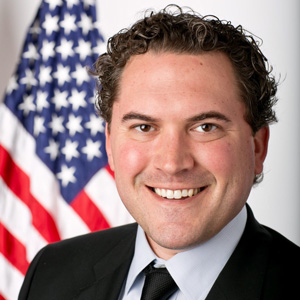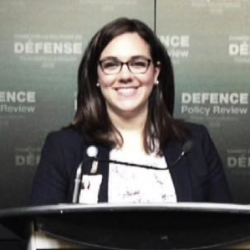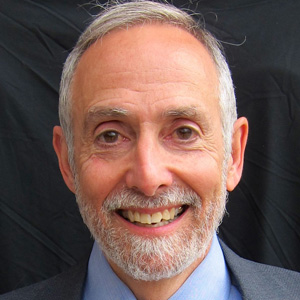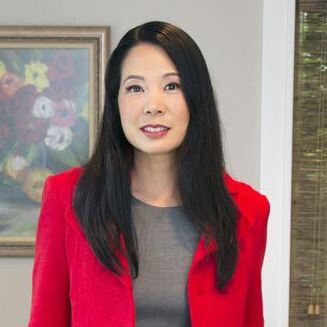Webcast Agenda
We will be webcasting Track 1 live. All tracks will be available as an on-demand recording within seven business days after the event has concluded. You can purchase the webcast here: Purchase Webcast.
TRACK 2: Advanced Speechwriting & Executive Communications: Topics to enhance your work and spur new ideas for more experienced communicators
Thursday, March 8
Welcome remarks
What they learned in the White House: A conversation with the chief speechwriters for President Barack Obama and First Lady Michelle Obama
Cody Keenan, director of speechwriting for President Barack Obama, and Sarah Hurwitz, former chief speechwriter for first lady Michelle Obama, will give you a behind-the-scenes look at what it was like to write speeches for this historic couple. Citing real-life examples from their time in the White House, Keenan and Hurwitz will offer advice on how to tell memorable stories, make persuasive arguments and capture the imagination of any audience.
During this keynote you will learn how to:
- Move your audience with powerful stories
- Establish an authentic connection between your speaker and the audience
- Employ vivid language that will motivate people to take action
- Perform under pressure in times of crises
- Write for a variety of difference audiences
Thought leadership: Buzzword, BS or a believable platform for your executive?
“How can we make our CEO a thought leader?” It’s one of the most dreaded questions an executive communicator can hear, and if you haven’t been asked yet, chances are you will at some point. Instead of “How can we,” though, perhaps the question should start with “Should we?” Chris Mainz, who works with the CEO of Southwest Airlines, will share insights, successes and questions to consider when charged with developing a thought leadership platform.
In this session, you’ll learn how to:
- Determine whether a thought leadership platform makes sense for your leader
- Arrive at the right message at the right time for your employees, customers and stakeholders
- Ways to establish whether your message resonates and is making an impact
- Seize the power of repurposing on different traditional and social channels
Panel: Tips for writing your best “big speech”
Whether you’ve been asked to write a commencement or a convention speech, this panel of experienced speechwriters will share how best to understand the audience, define a speaker’s main message and work under a time crunch.
You will learn how to:
- Determine what really matters to your audience so you can craft language and content that will strike a chord with them
- Research the topic and be prepared to bring interesting facts, figures and anecdotes to the table to liven up the speech
- Have the speaker define his/her goals and audience takeaways in simple terms
- Decide how you’re going to organize the speech, establishing a hook and revolving the speech around the speaker’s focal point
- And so much more!
Surviving a leadership transition: Five ways to thrive when the world shifts
Adrianne Goldsmith Romero has worked for three FBI directors: Robert Mueller, James Comey and now Christopher Wray. She knows what it means to develop a process for speechwriting, editing and event preparation—and then have everything change when your world shifts and the slate is wiped clean. How do you hit the ground running? How do you learn a new leader’s speaking style, preferences and motivations? How do you build credibility with a new boss? How do you balance your institutional knowledge with new leadership priorities? How do you learn to work with a new team—one with its own agenda?
In this up-to-the minute session, you will learn how to:
- Get the skinny on your new speaker, even in the absence of one-on-one interaction
- Identify your leaders’ priorities and learn what makes them tick
- Draw on your institutional knowledge to help your leaders understand the big picture—the culture, the undercurrents and the issues they need to know
- Illustrate your value to become indispensable to a new team
- Think like a fox: Know when to quietly sit, listen and observe, and when to leap into action to get what you need
All the presidents’ men and women: 30 years of White House speechwriters
During the 30 years of this conference, attendees have heard from White House speechwriters dating back to President Ronald Reagan. In honor of that tradition, we have invited an all-star panel of presidential speechwriters spanning the past 30 years to share stories and insights about writing for the highest office.
Friday, March 9
Breakfast and brainstorming: Tips on how to take the next step in your career
Hear from a panel of speechwriters and executive communicators who have successfully charted their path in different fields and can offer tips and advice on how to make your next career move.
Panelists:
How to evaluate and manage executive response to crises and controversial events
Mayo Clinic, a destination medical center with 68,000 employees and patients from all 50 states and 150 countries, is connected to many of the socially significant events that occur around the world. Whether it is a tragedy such as a mass shooting, the death of a pop icon like Prince or a movement like Black Lives Matter, understanding how to communicate during times of social unrest can be a challenge. To assist with quick decision-making, Mayo Clinic developed an issues response tool that helps objectively evaluate an event to lend insight into the appropriate level of response. Mayo Clinic’s Annie Burt will share the events leading up to creation of the tool and examples of how it is used to create genuine and effective leadership messaging that’s timely and reflective of the organization’s culture, purpose and priorities.
You will learn how to:
- Identify all of the potential strategic factors that inform an organization’s response to an external social event, including impact on employees, customers, benefactors and partners
- Establish the appropriate level of response to an external social issue using fact-based decision-making, reducing the need to respond based on emotions and limiting the potential for an “arms race” of supportive messaging
- Understand the range of responses that may be appropriate when faced with an external social issue—for both internal and external audiences.
- Identify ways to responsibly and authentically respond to an issue without diluting your executive’s voice or creating “white noise”
- Evaluate and create responses that best speak to your primary audiences in an emotionally charged situation
Firebrand leaders: Amplify your inspiration quotient to unite and ignite
Now more than ever, the world needs exceptional leaders, but what separates a truly extraordinary leader from a merely ordinary executive? It’s leading with an “upstart” attitude: having the personal courage to be both vulnerable and mission driven. To be a thought leader who’s both a simplifier and dilemma flipper. To inspire followers about the world they’re building with your organization’s every product, service or campaign. Let’s talk about how we—as executive speechwriters, the builders of platforms and the wielders of words—can help shape better leaders, and how sharing a compelling vision and narrative can bring out the “upstart” in our leaders so they can lead our world to a better story.
You will walk away from this keynote with:
- The top 10 traits of an upstart leader, and ways your leaders can showcase those attributes onstage and on the page
- Proven communications techniques for your leader to connect quickly and powerfully with audiences
- Strategies to develop thought leadership to establish your leader’s unique position in the industry



















